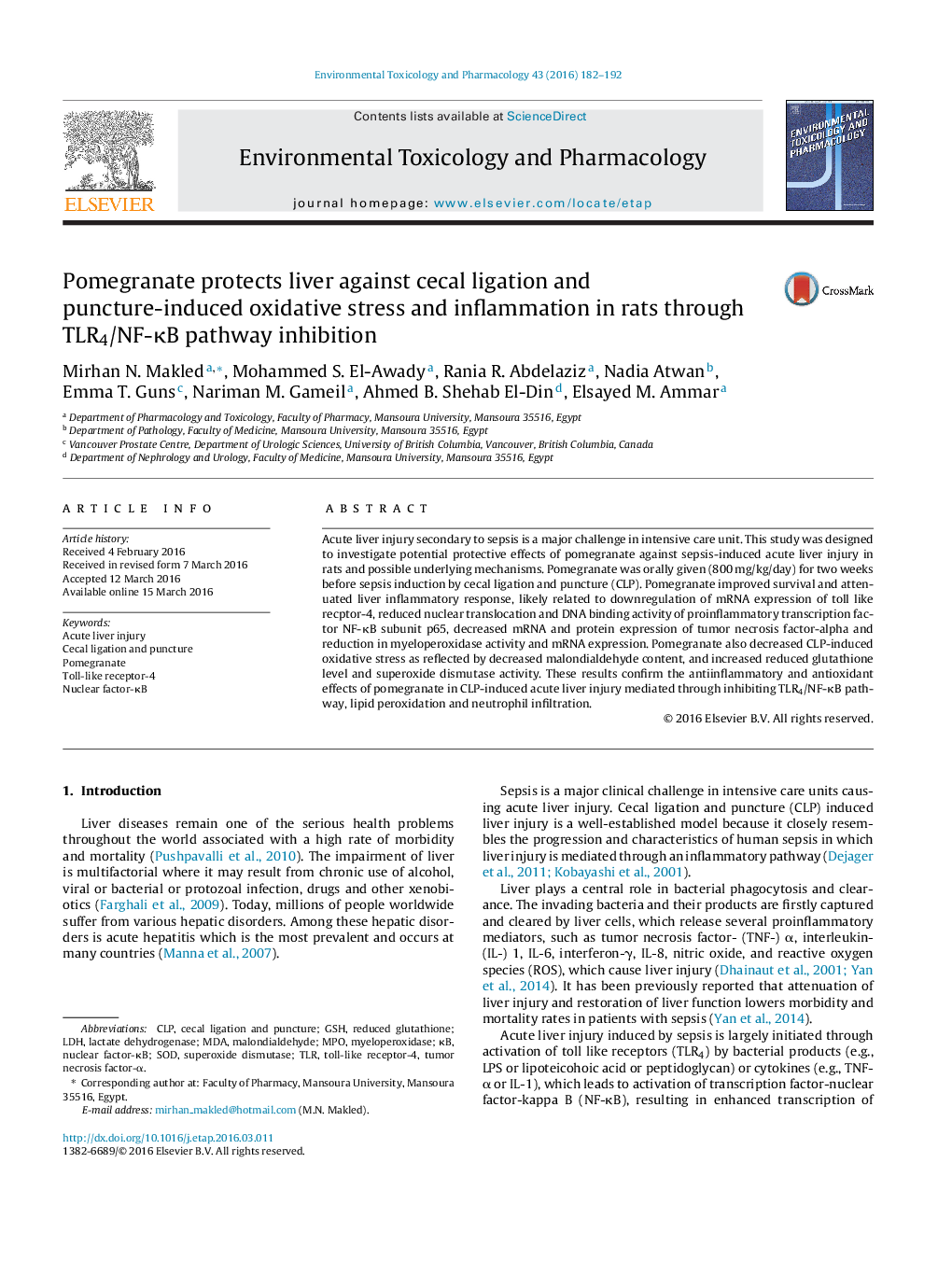| Article ID | Journal | Published Year | Pages | File Type |
|---|---|---|---|---|
| 2582767 | Environmental Toxicology and Pharmacology | 2016 | 11 Pages |
•Pomegranate has antiinflammatory and antioxidant effects on CLP-acute liver injury.•Pomegranate has ability to inhibit TLR4/NF‐κB pathway and neutrophil infiltration.•Pomegranate has ability to modulate lipid peroxidation and antioxidants levels.
Acute liver injury secondary to sepsis is a major challenge in intensive care unit. This study was designed to investigate potential protective effects of pomegranate against sepsis-induced acute liver injury in rats and possible underlying mechanisms. Pomegranate was orally given (800 mg/kg/day) for two weeks before sepsis induction by cecal ligation and puncture (CLP). Pomegranate improved survival and attenuated liver inflammatory response, likely related to downregulation of mRNA expression of toll like recptor-4, reduced nuclear translocation and DNA binding activity of proinflammatory transcription factor NF-κB subunit p65, decreased mRNA and protein expression of tumor necrosis factor‐alpha and reduction in myeloperoxidase activity and mRNA expression. Pomegranate also decreased CLP‐induced oxidative stress as reflected by decreased malondialdehyde content, and increased reduced glutathione level and superoxide dismutase activity. These results confirm the antiinflammatory and antioxidant effects of pomegranate in CLP‐induced acute liver injury mediated through inhibiting TLR4/NF‐κB pathway, lipid peroxidation and neutrophil infiltration.
